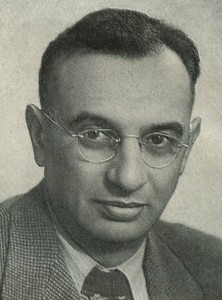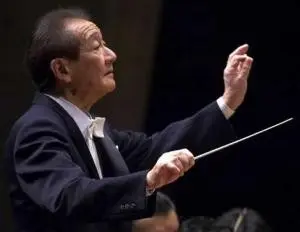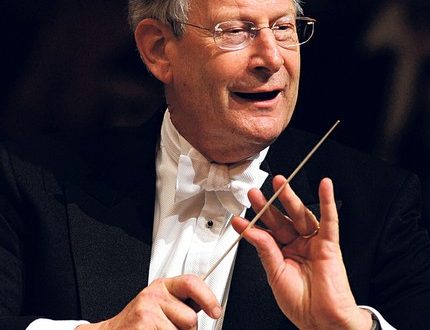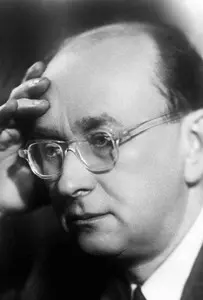
Boris Emmanuilovich Khaikin |
Boris Khaikin

People’s Artist of the USSR (1972). Khaikin is one of the most prominent Soviet opera conductors. Over the decades of his creative activity, he worked in the best musical theaters in the country.
Immediately after graduating from the Moscow Conservatory (1928), where he studied conducting with K. Saradzhev, and piano with A. Gedike, Khaikin entered the Stanislavsky Opera Theater. By this time, he had already taken his first steps in the field of conducting, having completed practical training under the guidance of N. Golovanov (opera class) and V. Suk (orchestral class).
Already in his youth, life pushed the conductor against such an outstanding master as K. S. Stanislavsky. In many respects, Khaikin’s creative principles were formed under his influence. Together with Stanislavsky, he prepared the premieres of The Barber of Seville and Carmen.
Khaikin’s talent manifested itself with the greatest force when he moved to Leningrad in 1936, replacing S. Samosud as artistic director and chief conductor of the Maly Opera Theatre. Here he had the honor to preserve and develop the traditions of his predecessor. And he coped with this task, combining work on the classical repertoire with active promotion of works by Soviet composers (“Virgin Soil Upturned” by I. Dzerzhinsky, “Cola Breugnon” by D. Kabalevsky, “Mother” by V. Zhelobinsky, “Mutiny” by L. Khodja-Einatov ).
Since 1943, Khaikin has been the chief conductor and artistic director of the Opera and Ballet Theater named after S. M. Kirov. Here special mention should be made of the creative contacts of the conductor with S. Prokofiev. In 1946, he staged Duenna (Betrothal in a Monastery), and later worked on the opera The Tale of a Real Man (the performance was not staged; only a closed audition took place on December 3, 1948). Of the new works by Soviet authors, Khaikin staged at the theater “The Family of Taras” by D. Kabalevsky, “The Prince-Lake” by I. Dzerzhinsky. The performances of the Russian classical repertoire – The Maid of Orleans by Tchaikovsky, Boris Godunov and Khovanshchina by Mussorgsky – became serious conquests of the theater. In addition, Khaikin also performed as a ballet conductor (Sleeping Beauty, The Nutcracker).
The next stage of Khaikin’s creative activity is associated with the Bolshoi Theater of the USSR, of which he has been a conductor since 1954. And in Moscow, he paid considerable attention to Soviet music (the operas “Mother” by T. Khrennikov, “Jalil” by N. Zhiganov, the ballet “Forest Song” by G. Zhukovsky). Many performances of the current repertoire were staged under Khaikin’s direction.
“The creative image of B. E. Khaikin,” writes Leo Ginzburg, “is very peculiar. As an opera conductor, he is a master who can organically combine musical dramaturgy with theatrical. The ability to work with singers, the choir and the orchestra, to persistently and at the same time not intrusively achieve the results he desired, always aroused the sympathy of the ensembles for him. Excellent taste, great culture, attractive musicianship and sense of style made his performances always significant and impressive. This is especially true of his interpretations of the works of Russian and Western classics.
Khaikin had to work in foreign theaters. He staged Khovanshchina in Florence (1963), The Queen of Spades in Leipzig (1964), and conducted Eugene Onegin in Czechoslovakia and Faust in Romania. Khaykin also performed abroad as a symphony conductor (at home, his concert performances were usually held in Moscow and Leningrad). In particular, he took part in a tour of the Leningrad Philharmonic Symphony Orchestra in Italy (1966).
As early as the mid-thirties, Professor Khaikin’s teaching career began. Among his students are such famous artists as K. Kondrashin, E. Tons and many others.
L. Grigoriev, J. Platek, 1969





